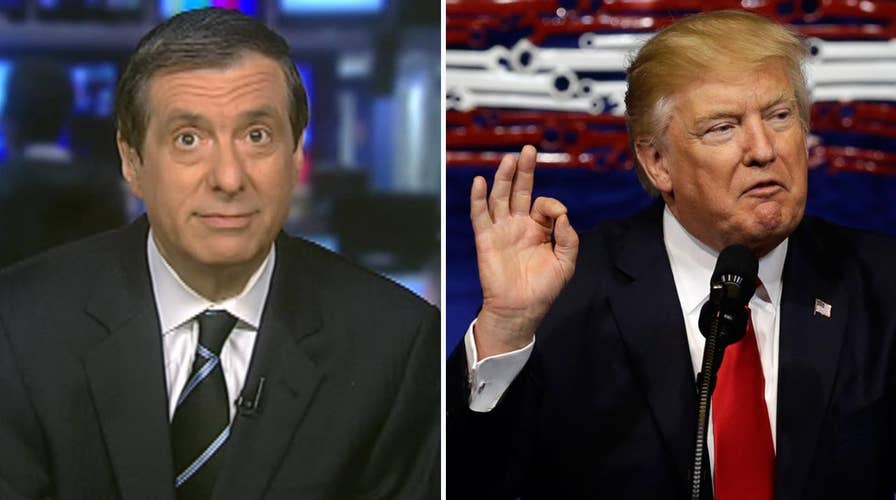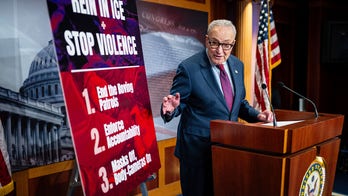Kurtz: Trump's muscular foreign policy stirs doubts
'MediaBuzz' host Howard Kurtz weighs in on the sharp media shift toward Trump's foreign policy with Syria and North Korea
President Trump is creeping up in the polls now that foreign policy has seized center stage.
With his domestic agenda lagging for now, Trump is discovering, as his predecessors did, that a president has far greater latitude on the world stage. At the same time, global events have demanded an administration response.
It’s hardly surprising that Trump’s approval rating is getting a little better—up six points, to 40 percent, in a new Quinnipiac poll. He launched widely praised airstrikes against Syria over a chemical weapons attack, and used the Mother of All Bombs against ISIS in Afghanistan.
Presidents usually get a boost after taking military action, though that can be short-lived.
By challenging North Korea with tough verbal exchanges, as that regime is making nuclear threats, Trump also keeps the focus on foreign affairs--as opposed to tax reform or the failed health care bill.
Now the media’s critique of Trump is shifting. New York Times reporter Glenn Thrush tweeted: “Will he talk us into a war?”
Here is the story he coauthored with Mark Landler:
“Mr. Trump’s confrontational and improvisational approach to foreign affairs has lifted his mood, fortunes and poll numbers in recent days…
“But Mr. Trump’s mix of chest thumping and real action — the missile attack and the use of a huge bomb against Islamic militants in Afghanistan — entails serious risks overseas. It could also backfire at home, where a majority of Americans, and many of the populist conservatives who backed him in 2016, oppose long-term military commitments.”
And here comes the Mother of All Nut Grafs:
“The biggest risk, critics say, is that Mr. Trump will talk himself into a war. Only slightly less dangerously, he could weaken the nation’s standing by backing off from a threat to use force.”
Well, there is certainly risk in pressuring North Korea, bombing Syria and escalating firepower in Afghanistan. But there is also the risk of inaction—which Barack Obama was often accused of, especially in Syria, with his “leading from behind” approach.
The Washington Post says the president’s foreign policy is being “undercut by confusing and conflicting messages from within his administration.
“Over the past two weeks, policy pronouncements from senior Trump aides have often been at odds with one another — such as whether Syrian President Bashar al-Assad must leave power as part of a negotiated resolution to end that nation’s civil war.”
And there is evidence to back that up. Rex Tillerson and Nikki Haley sometimes use harsher rhetoric than Trump, whether it’s on Russia, Syria or ISIS. But another view is that this reflects Trump’s unique style. By letting his lieutenants rattle sabers, the president may project ambiguity about his intentions and keep our enemies guessing.
One of his constant refrains during the campaign was that he wasn’t going to telegraph military action.
But there are times when the mixed messages simply don’t work. After Trump tried to exert pressure by saying he was sending an armada to the region of the Korean Peninsula, the administration had to admit that it sailed to Indonesia—a rather roundabout route.
In the end, the president has to produce results in some of the world’s trouble spots—and his track record will matter more than any media scorekeeping.













































